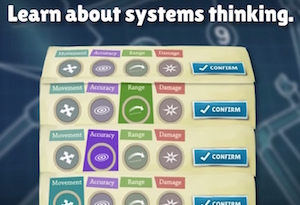Catapult Game Teaches Standards-Based Engineering Basics
- By Dian Schaffhauser
- 02/26/15

A new game from Filament Games promises to teach students engineering concepts and problem-solving skills by allowing them to design (and redesign) a catapult for pitching water balloons.
"Backyard Engineers" challenges players to create the optimal catapult by manipulating mechanical elements on the device for maximizing movement, accuracy, range and "damage" in order to beat out the projectiles coming from the opposing team of neighborhood kids. The game is available in app form for Google Android and Apple iOS devices, or it can be played in a browser.
According to the company, the lessons in the game align with Benchmarks for Science Literacy from the American Association for the Advancement of Science, Next Generation Science Standards, Common Core State Standards and Texas Essential Knowledge and Skills.
The game includes a 90-page standards-based curriculum guide for teachers and access to a teacher dashboard for measuring student progress. The guide has week-long curriculum with discussion activities, workshops, labs and assessments. Students gain access to a student guide. The price is $5.99 per account for teacher or student.
"Backyard Engineers is designed to break down difficult mechanical design concepts into simple, easy-to-learn game mechanics," said Dan White, co-founder and chief product officer. "This makes a complex subject like engineering much more approachable and enjoyable to learn."
About the Author
Dian Schaffhauser is a former senior contributing editor for 1105 Media's education publications THE Journal, Campus Technology and Spaces4Learning.